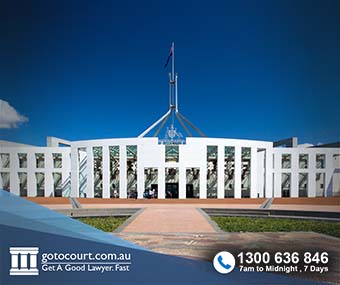Call our lawyers
now
or,
have our lawyers
call you
Can I Be Evicted if I Have Been Financially Disadvantaged by COVID-19? (NSW)
Updated on Apr 21, 2020 • 5 min read • 256 views • Copy Link
Can I Be Evicted if I Have Been Financially Disadvantaged by COVID-19? (NSW)
Many people who are residential tenants in New South Wales have been financially disadvantaged by COVID-19. This may be because of reduced work hours, because of business closures or because of being unable to work due to illness. In recognition of the exceptional circumstances facing renters at the moment, the state government has introduced temporary restrictions on evictions of tenants who have been financially disadvantaged by COVID-19. This article outlines those measures, which are contained in the Residential Tenancies Amendment (COVID-19) Regulation 2020.
Evictions moratorium
Starting on 15 April 2020, the NSW government has introduced a moratorium on evictions for rental arrears where the tenant is experiencing financial hardship due to COVID-19. For 60 days after that date, landlords will be restrained from evicting tenants who are unable to pay their rent because of COVID-19. For a further six months, restrictions will be in place on rental arrears evictions for tenants financially disadvantaged by COVID-19.
For 60 days, landlords must not issue termination notices or applying to NCAT for eviction orders where tenants are financially disadvantaged by COVID-19. A landlord must enter into good faith negotiations with their tenant for a rental reduction. After 60 days have passed, a landlord may seek a termination notice or an eviction order only if there are circumstances in the specific case that make it fair and reasonable to do so.
Who has been financially disadvantaged by COVID-19?
Under Section 41B of the Regulations, in order to be eligible for the 60-day moratorium and the six months of restrictions, a tenant must demonstrate that:
- One or more rent-paying members of the household has had their income reduced by COVID-19 closures or stand-downs;
- One or more rent-paying members of the household has had to stop working or work less due to being ill with COVID-19 or caring for someone who is ill with COVID-19;
- The above results in a reduction of household income of at least 25 per cent.
Proof of eligibility
A tenant who wants to take advantage of the moratorium must provide the following documents to prove they are eligible as someone who has been financially disadvantaged by COVID-19:
- Proof of job termination or reduction of work hours;
- Proof of government income support;
- Proof of prior income.
What if we can’t agree?
If the landlord and the tenant are unable to come to an agreement about a rental reduction between themselves, they can use the Dispute Resolution Service provided by NSW Fair Trading. Fair Trading will seek evidence from the tenant about their financial situation and will try to try to reach a temporary agreement with the landlord for the payment of rent.
Why have the changes been made?
The temporary moratorium and restrictions on evictions have been put in place to allow tenants who are experiencing hardship to access government payments such as the JobKeeper Payment. Applications for such benefits are subject to waiting periods and the moratorium gives people time to have their application processed without the pressure of having to maintain their ordinary level of rental payments during the time they are on a reduced income.
What happens after the six months is up?
Tenants who renegotiate rent during the six-month period may be required to pay back the unpaid rent after the six months period has passed. Rental arrears may be waived if this is agreed between the tenant and the landlord.
What about sub-tenants?
Sub-tenants to whom the Residential Tenancies Act 2010 applies are eligible to claim the stop on evictions. These are sub-tenants who have written tenancy agreements with the main tenant or where the main tenancy agreement has been transferred to the sub-tenant.
What happens after the 60 days?
If a tenant is still unable to pay the usual rental amount after the 60 days have passed, their tenancy may be terminated due to rental arrears only if the landlord has attempted good faith negotiations for a rental reduction and the tenant has refused.
What about the landlord’s expenses?
Landlords who are required to give rental reductions during this period should negotiate with their bank to have their mortgage payments waived or reduced.
If a landlord is suffering undue hardship, they may apply to the Tribunal to take possession of the property. This can be done at any time during the 60-day moratorium or the further six-month restriction are in place.
Residential tenancy databases
Landlords and agents are not allowed to have a tenant listed on a residential tenancy database such as TICA if their breach of the residential tenancy agreement came about purely because they had been financially disadvantaged by COVID-19.
Boarding house residents
Temporary changes have also been made to the Boarding Houses Regulation 2013.
When a boarding house resident’s income is reduced by 25% or more because of COVID-19-related closures or illness, the proprietor must enter into good faith negotiations for a rental reduction. When no agreement is reached because the resident did not negotiate in good faith, the proprietor may terminate the agreement with 60 days’ written notice. If the resident did negotiate in good faith for a rental reduction, the proprietor may terminate the agreement with six months written notice.
If a proprietor wants to terminate an agreement for another reason during the moratorium period, they must give the resident at least 90 days written notice. This does not include evictions for reasons that are not COVID-19 related, such as where the resident has intentionally or recklessly damaged the property or where they are using it for illegal purposes.
The NSW government has also rolled out a renter relief package for commercial tenancies where the lessor has been financially disadvantaged by COVID-19.
If you require legal advice or representation in any legal matter, please contact Go To Court Lawyers.

Affordable Lawyers
Our Go To Court Lawyers will assist you in all areas of law. We specialise in providing legal advice urgently – at the time when you need it most. If you need a lawyer right now, today, we can help you – no matter where you are in Australia.How It Works











1. You speak directly to a lawyer
When you call the Go To Court Legal Hotline, you will be connected directly to a lawyer, every time.


2. Get your legal situation assessed
We determine the best way forward in your legal matter, free of charge. If you want to go ahead and book a face-to-face appointment, we will connect you with a specialist in your local area.


3. We arrange everything as needed
If you want to go ahead and book a fact-to-face appointment, we will connect you with a specialist in your local area no matter where you are and even at very short notice.













